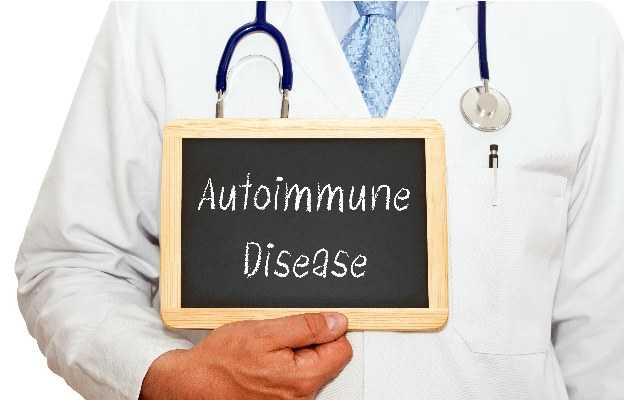There are millions of bacteria, virus, parasites and other microorganisms that attack the human body to feed on it. Our immune system fights off all these invaders and is therefore essential for our survival.
White blood cells are the main soldiers of our immune system. They help in fighting the invaders (the microorganisms) that enter any system of the body.
Here's how it works normally: when a foreign body like a bacteria enters our bloodstream, the immune system gets activated. The immune system treats the foreign body as an enemy or antigen and forms an "antibody" against it. An antibody fights with the antigen and kills it before the microorganism can cause infection.
An autoimmune disease is a condition in which the immune system starts seeing parts of the body as foreign and produces antibodies against them. The antibodies start killing the healthy tissues of the body, leading to many untreatable diseases.
There is no cure for autoimmune diseases but their symptoms can be managed with the help of various treatments.
Pernicious anaemia
Vitamin B12 helps in the production of energy in the body. It is essential for proper brain functioning and for the synthesis of red blood cells. For the absorption of vitamin B12, the body requires intrinsic factor, a glycoprotein released by the stomach for this purpose.
In pernicious anaemia, the body forms antibodies against the parietal cells which line the stomach and make intrinsic factor. These antibodies destroy the parietal cells, thus making it impossible for the stomach to make the intrinsic factor. The common symptoms of pernicious anaemia are:
Inflammatory bowel disease
Inflammatory bowel disease (IBD) is a medical condition marked by chronic inflammation of the gastrointestinal tract, which starts from the mouth, goes to the oesophagus (food pipe), stomach, small intestine, large intestine, and ends at the anus.
Crohn’s disease and ulcerative colitis are types of IBD which damage the gastrointestinal tract. Ulcerative colitis is limited to the colon (the large intestine) while Crohn's disease can occur anywhere between the mouth and the anus.
The common symptoms of IBD are:
Read more: Exercises for irritable bowel syndrome
Myasthenia gravis causes muscle weakness
Myasthenia gravis is an autoimmune disease where the muscles of the skeletal system weaken with time. Although myasthenia gravis can affect any skeletal muscle, facial muscles are most commonly involved. The affected person may suffer from weakness in the arms, hands, fingers, legs, and neck.
The thymus gland present in the chest controls the immune system and is associated with myasthenia gravis. The gland normally grows till puberty and then gets smaller with time, but in some people, it remains enlarged.
Sometimes people with myasthenia gravis develop a tumour on their thymus gland which is known as thymoma.
The common symptoms of myasthenia gravis are:
- Inability to smile due to drooping of the mouth
- Slurring of speech
- Drooping of one or both the eyelids (medically called ptosis)
- Blurred vision due to weakening of eye muscles
- Difficulty swallowing
- Shortness of breath

 Doctors for Autoimmune Disease
Doctors for Autoimmune Disease  OTC Medicines for Autoimmune Disease
OTC Medicines for Autoimmune Disease



































